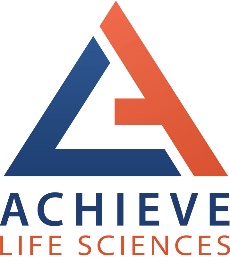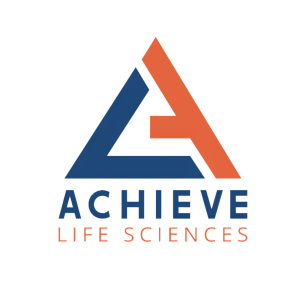Achieve Life Sciences Announces Presentation of Data on Smoker and E-Cigarette User Attitudes and Perceptions on Quitting at the Society for Research on Nicotine & Tobacco (SRNT) Annual Meeting
Rhea-AI Summary
Achieve Life Sciences (Nasdaq: ACHV) announced the presentation of three posters at the SRNT Annual Meeting on February 24, 2021. The data highlighted the low satisfaction levels among smokers concerning current cessation treatments and indicated that over 75% of Chantix users do not complete the recommended therapy course. Additionally, 73% of e-cigarette users plan to quit vaping within the next year. Achieve is enrolling participants for the Phase 3 ORCA-2 study of cytisinicline, a potential new treatment for nicotine addiction.
Positive
- None.
Negative
- Low satisfaction with existing cessation treatments among smokers.
- Over 75% of Chantix users do not complete the treatment course.
- Dual users of vaping products show heavier nicotine addiction.
News Market Reaction 1 Alert
On the day this news was published, ACHV gained 4.02%, reflecting a moderate positive market reaction.
Data tracked by StockTitan Argus on the day of publication.
SEATTLE, WA and VANCOUVER, BC / ACCESSWIRE / February 24, 2021 / Achieve Life Sciences, Inc. (Nasdaq:ACHV), a clinical-stage pharmaceutical company committed to the global development and commercialization of cytisinicline for smoking cessation and nicotine addiction, announced that three posters featuring data on smoker and e-cigarette user behavior will be presented today, Wednesday, February 24th at the SRNT Annual Meeting being held virtually. An overview of the data can be also accessed by visiting https://ir.achievelifesciences.com/srnt2021.
Poster Highlights
- "A Survey in the United States of Attitudes to Nicotine Cessation in Smokers: Smokers' Satisfaction with Available Treatments" (PH-293): Results from a recent survey of 1,122 current and former smokers indicated the overall satisfaction and perceived efficacy of available cessation treatments was low. A majority of smokers who use prescription medications to quit smoking do not complete the 3-month course of therapy and concerns about side effects are reported as the key reason for non-compliance, or refusal to initiate treatment with Chantix® (varenicline) or bupropion.
- "A Survey in the United States of Attitudes to Nicotine Cessation in Vapers: Reasons for Choosing to Vape" (PH-294) Survey results from 508 users of nicotine vape products showed that the primary reason to initiate e-cigarettes/vaping was to quit combustible cigarettes. While proven successful in the cohort of subjects who only utilize vape, dual users, those who vape but also continue to smoke, reported 2-times heavier nicotine use than their counterparts. These data suggest that dual users become more heavily addicted to nicotine due to vaping.
- "A Survey in the United States of Attitudes to Nicotine Cessation in Vapers: Their Plans to Quit Vaping" (PH-295) Data from 508 users of nicotine vape products indicated that
73% of e-cigarette/vape users intend to quit vaping in the next 3-12 months. Of those who intend to do so in the next 3 months, more than half reported they would be "very/extremely likely to try a new prescription product" to help them quit.
"This real-world evidence supports the critical need for a new therapeutic option for smokers and e-cigarette users who are unable to tolerate, or refuse to take, currently available treatments due to side effects or negative product perceptions," commented John Bencich, CEO of Achieve. "We know that more than
Achieve is currently enrolling smokers in the 750-subject, Phase 3, ORCA-2 study of cytisinicline at 15 sites the U.S. For more information on cytisinicline and the ORCA-2 study, visit www.achievelifesciences.com or www.orca-2.com.

About Achieve and Cytisinicline
Tobacco use is currently the leading cause of preventable death that is responsible for more than eight million deaths worldwide and nearly half a million deaths in the U.S. annually.1,2 More than
Achieve's focus is to address the global smoking health and nicotine addiction epidemic through the development and commercialization of cytisinicline.
Cytisinicline is a plant-based alkaloid with a high binding affinity to the nicotinic acetylcholine receptor. It is believed to aid in smoking cessation by interacting with nicotine receptors in the brain by reducing the severity of nicotine withdrawal symptoms and by reducing the reward and satisfaction associated with smoking.
Cytisinicline is an investigational product candidate being developed for treatment of nicotine addiction, and has not been approved by the FDA for any indication in the U.S.
Forward Looking Statements
This press release contains forward-looking statements within the meaning of the "safe harbor" provisions of the Private Securities Litigation Reform Act of 1995, including, but not limited to, statements regarding the timing and nature of cytisinicline clinical development activities, the potential market size and market acceptance for cytisinicline, the potential benefits of cytisinicline and the development and effectiveness of new treatments. All statements other than statements of historical fact are statements that could be deemed forward-looking statements. Achieve may not actually achieve its plans or product development goals in a timely manner, if at all, or otherwise carry out its intentions or meet its expectations or projections disclosed in these forward-looking statements. These statements are based on management's current expectations and beliefs and are subject to a number of risks, uncertainties and assumptions that could cause actual results to differ materially from those described in the forward-looking statements, including, among others, the risk that cytisinicline may not demonstrate the hypothesized or expected benefits; the risk that Achieve may not be able to obtain additional financing to fund the development of cytisinicline; the risk that cytisinicline will not receive regulatory approval or be successfully commercialized; the risk that new developments in the smoking cessation landscape require changes in business strategy or clinical development plans; the risk that Achieve's intellectual property may not be adequately protected; general business and economic conditions; and the other factors described in the risk factors set forth in Achieve's filings with the Securities and Exchange Commission from time to time, including Achieve's Annual Reports on Form 10-K and Quarterly Reports on Form 10-Q. Achieve undertakes no obligation to update the forward-looking statements contained herein or to reflect events or circumstances occurring after the date hereof, other than as may be required by applicable law.
Media Contact
Glenn Silver
Glenn.Silver@Finnpartners.com
(646) 871-8485
Investor Relations Contact
Jason Wong
jwong@bplifescience.com
(415) 375-3340 ext. 4
References
1 World Health Organization. WHO Report on the Global Tobacco Epidemic, 2019. Geneva: World Health Organization, 2017.
2 U.S. Department of Health and Human Services. The Health Consequences of Smoking - 50 Years of Progress. A Report of the Surgeon General, 2014.
Chantix® is a registered trademark of Pfizer Inc.
SOURCE: Achieve Life Sciences, Inc.
View source version on accesswire.com:
https://www.accesswire.com/631465/Achieve-Life-Sciences-Announces-Presentation-of-Data-on-Smoker-and-E-Cigarette-User-Attitudes-and-Perceptions-on-Quitting-at-the-Society-for-Research-on-Nicotine-Tobacco-SRNT-Annual-Meeting







